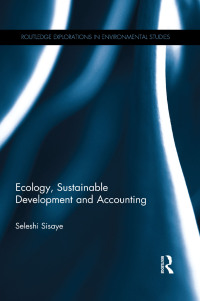Question
FATIMAS DIGNIFIED GOWNS CASE STUDY Fatima Ba-Alawi graduated in business administration from the University of Portsmouth in 2015. Less than one year later, seven National
FATIMAS DIGNIFIED GOWNS CASE STUDY
Fatima Ba-Alawi graduated in business administration from the University of Portsmouth in 2015. Less than one year later, seven National Health Service Hospitals were trialing her innovative hospital gowns, with interest from private sector hospital operator Bupa too. Her new company DCS Designs (Dignity, Comfort and Safety), had got off to a flying start.
Ba-Alawi had arrived in the United Kingdom in 1998, as a refugee from Somalia speaking no English. After studying for English GCSEs and A levels, she says: I applied to the University of Portsmouth to read business administration because the idea of going into business always appealed to me. She was keen to have her own business after finding it deeply unpleasant working for somebody else at a fast food outlet as a teenager.
It was while working in a local hospital as a care assistant that her business idea came to her. Conventional hospital gowns require patients to lift off the whole garment for medical examinations, which was undignified for wearers and awkward for carers. Ba-Alawi designed a new type of gown which provided extra coverage for the back and gave easy access points for examinations. The gowns also have an anti-microbial finish combating microbes such as the dangerous MRSA and C-Diff bugs. DCS gowns were more dignified, more comfortable and safe.
While still studying, Ba-Alawi approached the University of Portsmouths Centre for Enterprises for support. She won 500 ($750; Ghs3,000) in the Universitys Enterprise Challenge Competition, which she used to fund an initial prototype and carry out some market research. The Universitys mentoring service provided her with one-to-one coaching which help her to develop her business plan. This business plan won a further University prize, worth 2000 (approximately Ghs12, 000), which she used to fund a patent application and register her company, DCS Designs Ltd. She next put in a bid to the Universitys Student SEED Fund, gaining more support plus an office in the Universitys Centre for Enterprise ad access to virtual office facilities. The SEED fund allowed Ba-Alawi to manufacture sample gowns and distribute them to hospitals, at the same time as launching the DCS Designs website, which had a facility for user feedback. The local Enterprise Hub also provided access to a local patent attorney to help protect her intellectual property.
Progress was slow, though. It was not until 2018 that DCS gained its first sales. NHS hospitals preferred to rent gowns, outsourcing the problems of laundering and repair. However, Ba-Alawi was recognized as an official Dignity Champion by the Department of Health, and the company slowly progressed. Just this year (2019), Ba-Alawi commented that her venture was a journey of sacrifices, sleepless nights and sometimes foodless nights! But it was worth it.What pays is persistence, patience and perseverance.
Case Questions
- What are kind of entrepreneur is Ba-Alawi?
- Explain the various entrepreneurial skills demonstrated by Ba-Alawi
- What challenges would you anticipate for Ba-Alawis DCS Designs Company if it takes off?
- How should Ba-Alawi deal with such challenges?
Step by Step Solution
There are 3 Steps involved in it
Step: 1

Get Instant Access to Expert-Tailored Solutions
See step-by-step solutions with expert insights and AI powered tools for academic success
Step: 2

Step: 3

Ace Your Homework with AI
Get the answers you need in no time with our AI-driven, step-by-step assistance
Get Started


